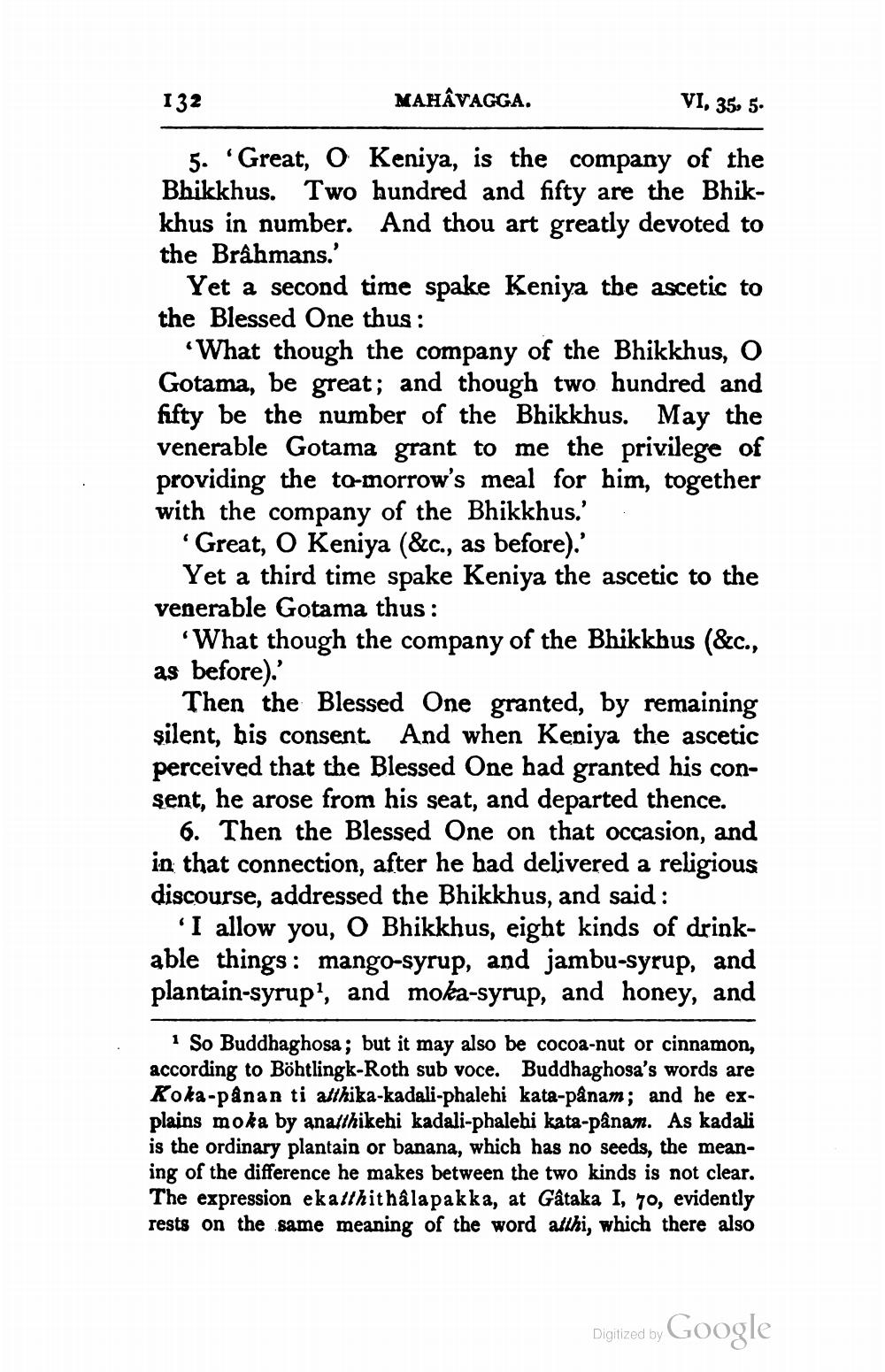________________
132
MAHÂVAGGA.
VI, 35, 5.
5. 'Great, О Keniya, is the company of the Bhikkhus. Two hundred and fifty are the Bhikkhus in number. And thou art greatly devoted to the Brahmans.
Yet a second time spake Keniya the ascetic to the Blessed One thus :
What though the company of the Bhikkhus, O Gotama, be great; and though two hundred and fifty be the number of the Bhikkhus. May the venerable Gotama grant to me the privilege of providing the to-morrow's meal for him, together with the company of the Bhikkhus.'
Great, О Keniya (&c., as before).'
Yet a third time spake Keniya the ascetic to the venerable Gotama thus:
What though the company of the Bhikkhus (&c., as before).'
Then the Blessed One granted, by remaining silent, his consent. And when Keniya the ascetic perceived that the Blessed One had granted his consent, he arose from his seat, and departed thence.
6. Then the Blessed One on that occasion, and in that connection, after he had delivered a religious discourse, addressed the Bhikkhus, and said:
'I allow you, O Bhikkhus, eight kinds of drinkable things: mango-syrup, and jambu-syrup, and plantain-syrup?, and moka-syrup, and honey, and
1 So Buddhaghosa; but it may also be cocoa-nut or cinnamon, according to Böhtlingk-Roth sub voce. Buddhaghosa's words are Koka-panan ti atthika-kadali-phalehi kata-pânam; and he explains moka by analthikehi kadali-phalebi kata-pânam. As kadali is the ordinary plantain or banana, which has no seeds, the meaning of the difference he makes between the two kinds is not clear. The expression ekatthithâla pakka, at Gâtaka I, 70, evidently rests on the same meaning of the word alihi, which there also
Digitized by
Digitized by Google




